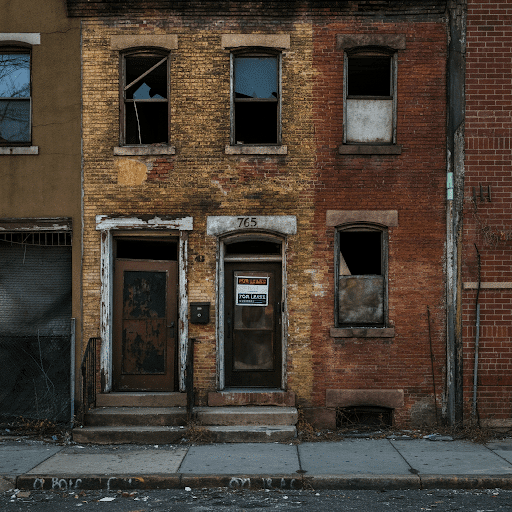What Is The Liability of a Landlord for Injuries ?

A Baltimore landlord must take reasonable measures to ensure the safety of his or her tenants. A landlord has an obligation to keep “common areas” such as exterior walkways, paths, stairways and facilities free from dangerous and defective conditions. A landlord is not generally responsible for dangerous or defective conditions inside of a leased premises. An experienced personal injury can help you in analyzing whether you can assert a claim against your landlord.
Common Baltimore Apartment Building Injuries
Baltimore apartment buildings are bustling hubs where tenants, visitors, and maintenance personnel coexist. While they offer convenience and community, they can also present various hazards that may lead to injuries. Common injuries in Baltimore apartment buildings arise from unsafe conditions, negligence, or lack of proper maintenance. While understanding these risks is crucial for both residents and property owners, understanding the legal relationships and responsibilities is vital for anyone sustaining a personal injury.
Baltimore Apartment Building Slip and Fall Accidents
Slip and fall incidents are among the most common injuries in apartment buildings. Wet floors, uneven walkways, icy staircases, or poorly lit hallways often contribute to these accidents. Property owners are responsible for maintaining common areas to ensure tenant safety, and failing to address hazardous conditions promptly can result in liability.
Stairway and Elevator Accidents in Baltimore Apartment Building
Stairways and elevators are essential in multi-story apartment buildings, but they can also be sources of injury. Loose railings, broken steps, or malfunctioning elevators can lead to serious accidents. For instance, a sudden elevator drop or failure to level with the floor can cause traumatic injuries to unsuspecting passengers.
Fire-Related Injuries
Fires in Baltimore apartment buildings can lead to burns, smoke inhalation, and other serious injuries. Faulty wiring, lack of functioning smoke detectors, or blocked emergency exits are common contributors. Landlords likely have a duty to ensure that fire safety measures, such as extinguishers and alarms, are in working order and accessible to tenants, and certainly in common areas.
In the event of a house fire in Baltimore, residents should contact the following official resources for help.
- Baltimore City Fire Department: For immediate emergencies, dial 911. For non-emergency inquiries, you can reach the Fire Department Headquarters at (410) 396-5690.
Baltimore City Fire Department
- Baltimore City Office of Emergency Management: For disaster recovery resources and information, contact the Office of Emergency Management at (410) 396-6188.
- Baltimore City Health Department: For health-related concerns following a fire, such as smoke inhalation or mental health support, reach out to the Health Department’s Emergency Preparedness and Response division at (443) 984-2622.
- Baltimore City Department of Housing and Community Development: For housing assistance or inspections related to fire damage, contact the main office at (410) 396-3500.
- Baltimore City Department of Public Works: For issues concerning water, sewage, or other utilities affected by the fire, call the Customer Care line at (410) 396-8968.
Baltimore Apartment Building Structural Hazard
Defective or poorly maintained building structures, such as collapsing balconies, loose ceiling tiles, or faulty plumbing, can result in severe injuries. For example, water leaks left unaddressed can lead to mold growth, which may cause respiratory issues or allergic reactions.



